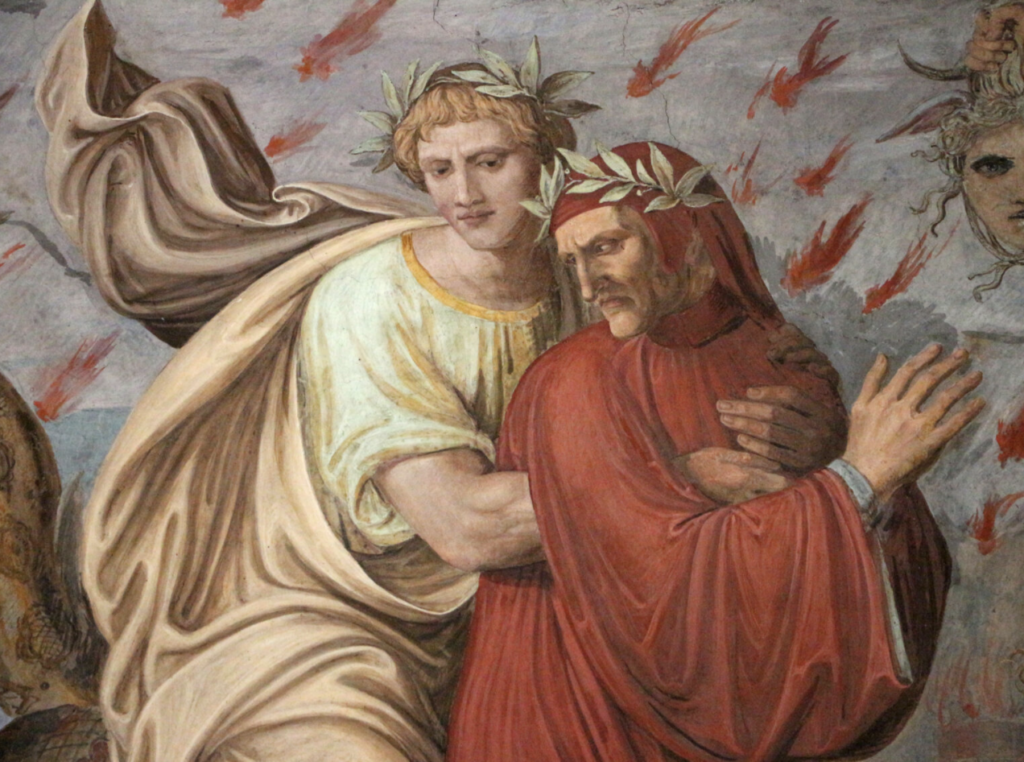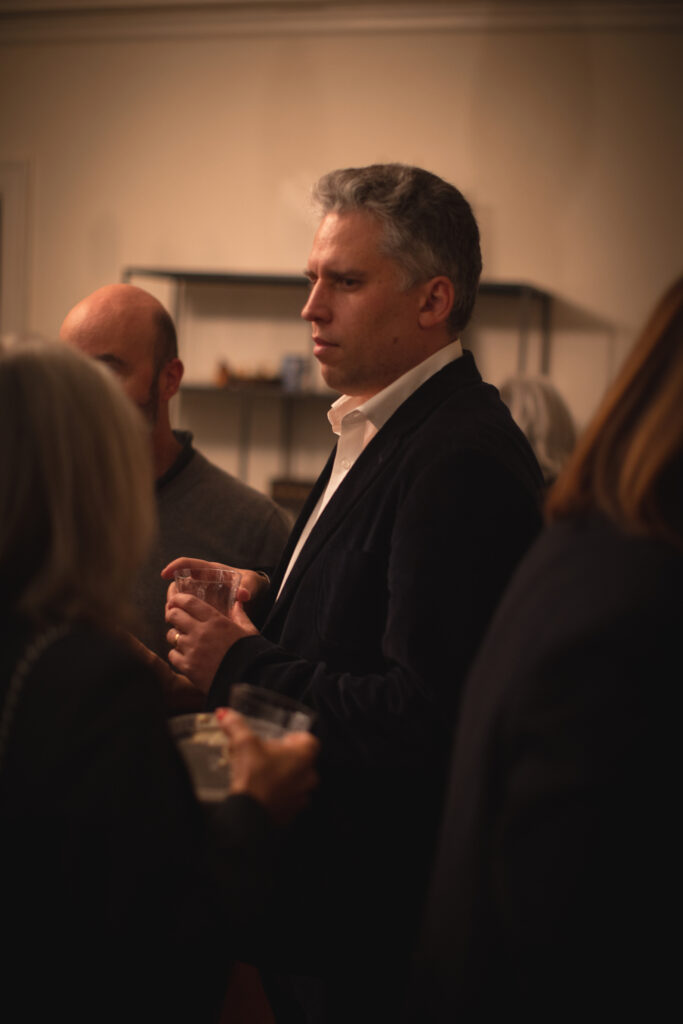Reading the “Inferno” in Ukraine: “a millennium-long class in surviving hell with poetry”
Saturday, January 20th, 2024
How is the shelling of Kyiv akin to Dante’s Inferno? Ukrainian Poet Ilya Kaminsky (we’ve written about him here and here and here) calls it “a millennium-long class in surviving hell with poetry, through music, imagery, and poetry’s willingness to look without flinching at the details of both terror and wonder: in a strange way, this book is a call to courage.” He adds: “The poem is outside of history, like snow and rain and wind.”
An excerpt or two from his piece in Asymptote Journal:
I have a friend who, before she ran from Kyiv as Russia bombarded the city in early 2022, spent weeks shivering in the bomb shelters as the city was shelled.

At first, she first recited poems by heart, and then she began to translate the poems she remembered.
That is how she got through the hours.
Who is to tell me after this that poetry doesn’t matter?
***
Somewhere in Ukraine right now, my friend who publishes books orders printers in the bombed out city of Kharkiv to produce thousands of copies of Inferno. The trucks deliver weapons into Kharkiv. And, going back, empty, they decide to pick up thousands of copies of Dante’s Inferno.
This is an image of war that happens as I write it: cars are bringing weapons into the besieged city that’s bombed daily, and they leave full of books.
***
Opening Dante’s Inferno enrolls the reader in a millennium-long class in surviving hell with poetry, through music, imagery, and poetry’s willingness to look without flinching at the details of both terror and wonder: in a strange way, this book is a call to courage.
***

In the underworld Dante meets his enemies and heroes—great thinkers, murderers, poets, politicians—but no one is too monumental. They are all trying to stay relevant to a living man, all too human, fragile, grotesque, not unlike ourselves, trying to say something that still matters.
Read the whole thing here.
Meanwhile, the journal reminds us: as support for Ukraine wavers in the US, we at Asymptote have kept up our coverage of the region also through Elina Sventsytska’s devastating poetry, a review of Oksana Lutsyshyna’s latest award-winning novel in English translation, and a dispatch about the chilling aftermath of a Russian dissident’s self-immolation.









